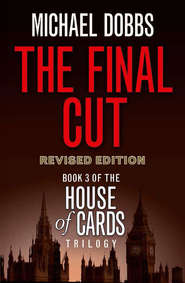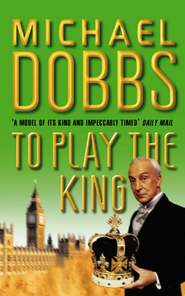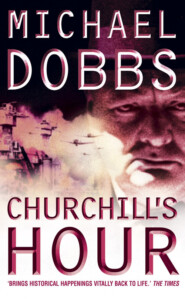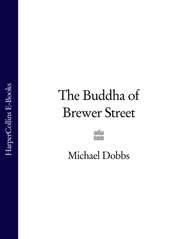По всем вопросам обращайтесь на: info@litportal.ru
(©) 2003-2024.
✖
The Touch of Innocents
Автор
Год написания книги
2018
Настройки чтения
Размер шрифта
Высота строк
Поля
‘Is … Isadora Dean. Izzy.’ The reply was tentative, sounding almost a question. But a start. ‘My fath …’ She started upon her habitual self-conscious explanation that she had been named after Isadora Duncan, the avant-garde dancer and teenage idol of her father, a Wisconsin dentist who hid a number of unpredictable passions behind the crisp formality of his dental mask, but the excuse was absurd and the attempt exhausting. She subsided and concentrated on trying to engage her thumb against her son’s cheek to push away his tears.
‘You’ve had an accident, lassie. Been in a wee bit of a coma. But you’re a strapping girl, you’ll pull through it fine. Won’t she, Mr Weatherup?’
The consultant, who was gently checking the pulse in her wrist, nodded. ‘Your spleen was giving you a little trouble, Mrs Dean, so we had to take it out. But that’s not a problem. You won’t even notice it’s gone, apart from a very small scar on the left side of your abdomen. And you’ve been asleep quite a while, but I think you’re going to be absolutely fine after a good period of rest. So long as young Benjamin here lets you breathe. Steady on, young man,’ he protested with a chuckle, turning to Benjamin whose arms had locked around his mother’s neck in a gesture which defied anyone to take her away again.
‘He’s … all right, doctor. Seems he’s got a lot of hugging to make up for,’ she countered.
‘You led us a merry dance, Izzy,’ McBean said. ‘Until this moment we had no idea who you were. You are American, aren’t you?’
Izzy nodded.
‘Your son has been through quite a shock, too, was unable to talk,’ Weatherup continued. ‘It was something of a risk, bringing the two of you together. We hoped it might be just the thing to snap the both of you back into form yet we couldn’t be certain how he would respond, if it might drive him deeper within himself. But I’m delighted …’
‘My baby? Where’s Isabella?’ The voice, until now weak and hesitant, had taken on new strength.
‘Mrs Dean, you mustn’t excite yourse …’
The question came again, slow, precise, unavoidable. ‘Doctor, where is my baby?’
The neurologist appeared suddenly uncomfortable, couldn’t meet her gaze, buried his hands deep in the pockets of his white coat and cast his eyes towards Sister McBean. She sat on the edge of the bed, placing a hand on both mother and son. Her words were slow, softly formed, trying to wrap the hammer in velvet.
‘I’m so desperately sorry, Izzy, my love.’ McBean paused, fighting her own emotions. There was no easy way. ‘I’m afraid your baby’s gone. She didn’t survive the accident.’
Hammer fall. Destruction. Inside something fractured, forever beyond repair.
Her face did not move, betrayed no pain, but in the flicker of an eyelid it had lost its flexibility and returning life, become a mask. With agonizing care, the lips sought for a response.
‘Didn’t deserve that. Not my poor Bella,’ she whispered, then nothing more. Her eyes went to McBean, beseeching some form of denial, but there was only compassion. A noise began to grow inside her, from deeper within than seemed imaginable, torn out by its roots, which was to burst forth in a sickening wail of grief. And of dismay. Of lost love. Of recrimination. Of guilt. Particularly of guilt.
A cry for an innocent lost.
TWO (#ulink_4fbf20a4-4048-5972-be20-36caa58cf189)
Grubb rapped on the door, hesitating fractionally before he entered. Characteristically he was a man who pushed his way around life ignoring the sensibilities and wishes of others and wouldn’t think twice about barging into hospitals, funerals, bedrooms and even ladies’ washrooms in search of his prey, but the managing editor had only recently taken over and was something of an unknown quantity.
Hugo Hagi, of West Coast Japanese-American stock via Wharton Business School and IBM, knew relatively little about TV news and had the good sense not to pretend otherwise. Instead of constantly watching television on one of the half-dozen screens which hid his office wall he would embalm himself in front of the computer screen which sat on the end of his desk. He was not, as Grubb would complain after a couple of beers, ‘batting from the same dugout’. The whole industry was being taken over by accountants who cared nothing for the professional pride of a world scoop and the exhilaration of dumping all over rival channels but who got their rocks off by studying bottom lines. Maybe they didn’t reproduce, didn’t know how to, just split in two like amoebae.
The new man had the frustrating habit of switching off the screen every time someone entered his room, as if he were protecting some great secret with which others couldn’t be trusted. Hell, there were no secrets in an open-plan newsroom where you had to raise your voice even to proposition one of the graduate researchers, but Hagi’s office was alien turf. Behind his back they called him ET on account of the unnatural green glow of the computer screen which normally lit his sallow features, and because everyone wished he would go home.
‘Hugi, got a minute?’ Grubb enquired, using the foreshortened soubriquet the Japanese-American hated only marginally less than ET.
The switch was thrown and the green glow subsided. The alien emerged in human form with a thin smile on his well-groomed features. He was considerably the younger, a three-hour marathon man, lacking the rough edges and dusty aura which hung around the foreign editor. There were no family photographs on the wall, only his framed MBA and a signed photograph of Wilbur Burns. It left Grubb feeling both resentful and nervous.
‘How can I help, Eldred?’ Hagi emphasized the name, retaliating in kind, insisting on the formal version of the foreign editor’s name rather than the more familiar Ed. How could you run a news room with people calling you ‘Eldred’, Chrissake?
‘Thought you’d like to know … Hugo,’ Grubb added, withdrawing from the field of battle under cover of a smile. ‘Problem solved. We’ve just heard from Izzy Dean, seems she’s been in a mother of a car smash and got herself stuck in a coma in some hospital in the West of England. She’s gonna be OK. Bad news about the kid, though. The young ‘un didn’t make it.’
Hagi seemed to be taking his time digesting the information, and by the vinegary expression on his face it seemed to have given him wind. ‘Did you say the problem was solved?’
It was the turn of the foreign editor to wrinkle his brow. ‘Sure. I mean, we know where she is. She hasn’t disappeared.’
‘But is she back working? Is she gracing our screens, pulling in the viewers?’
‘Hell, Hugo. She just lost a kid. Nearly killed herself, too. What’s the friggin’ problem?’
‘The problem, Eldred, is that Izzy Dean is once more not doing the job we pay her for.’
The screen flickered back to life as Hagi checked the details. He always checked details.
‘In May and June she was off the air for more than six weeks.’
‘That was maternity leave. She was entitled. Hugo, she worked right up to the wire. Even had the baby induced so’s she could get back in time to take the Paris posting. What more do you want?’
‘And two years ago it was another six weeks maternity leave. Makes me wonder where her priorities lie, making news or making babies,’ Hagi continued.
‘She’s a woman …’ Grubb began to splutter, but subsided; he could see the direction in which his superior was headed. His tone grew suddenly more practical. ‘She is one of the best.’
‘Not if she’s off screen, she’s not.’
Vivid language came drifting through the door as a young female production assistant exchanged views with a supplier who had thus far failed to deliver the promised portable satcom system to a correspondent on the point of leaving for the civil war in South Africa. Newsrooms could produce as many casualties as a civil war, except in civil wars they were less likely to bayonet the wounded.
‘Izzy’s in line for a presenter’s job,’ Grubb continued, ‘maybe even her own show. That’s what …’ He was about to say that’s what Ira Weiss, ET’s predecessor, had hinted, but Ira was yesterday’s man and his name now dirt. ‘That’s what … was thought.’
ET raised an eyebrow at the green screen. ‘She’s pushing forty.’
In fact she was thirty-seven, but Grubb wasn’t going to contest the point.
‘Let me put this on the table, Eldred. I think the strategy should be to present the younger face of news, not to be worrying whether our presenter is going to come out in a hot flush all of a sudden. Don’t you agree?’
It was time for the foreign editor to join the game. He had considerable admiration for Izzy, it was impossible not to, but there was no shared personal chemistry. He found her prissy, and she didn’t fuck. Not him, at least. And if someone’s job was going to be on the line under the new management, sure wasn’t going to be his. He rubbed his razor burn thoughtfully.
‘You know, Hugo, there’s no denying that this motherhood thing gets in the way. Not that she’s complained. Apart from the maternity leave, she’s never missed a day for mumps and measles and the rest.’
He wanted to be fair. It would make the betrayal so much more effective.
‘She’s very professional.’ Pause. ‘For a woman. But you know, Hugo, it’s not easy. For us, I mean, you and me. We need to send our people into some of the toughest spots in the world, into the middle of wars, revolutions, natural disasters, you name it. She’s never backed off, not that you’d know it. We even gave her some of the most difficult assignments, Gaza, Bosnia, the Colombia drug cartels – that’s where they shot up her car and she got winged – just to test her, to see if she was tough enough, had the balls for the job.’
He looked hard into ET’s eyes, trying to calculate the mood.
‘But that was before she got herself elected to the club. What are we gonna feel like now if we send her into some war zone, she gets her fanny shot away and we’re responsible for two motherless brats?’ He corrected himself immediately. ‘One motherless brat. We’ve got to live with that. It just …’ – he waved his hands – ‘complicates things.’
‘Getting pregnant once you could put down as an accident, one of those hormonal things. But twice looks like she’s making a career out of it. Not, of course, that I’m against equal opportunities,’ Hagi insisted, covering the legal niceties as if some federal agency had his office bugged, ‘but going into battle with babies clinging round your neck inevitably …’ – he nodded in deference to the foreign editor’s own phrase – ‘… complicates things.’
There was a brief silence.
‘So what d’you want me to do?’ the foreign editor enquired.
‘Why, Eldred, I want you to send her our best wishes for a speedy recovery and get our star foreign correspondent back to work, pronto. Doing what she’s paid to do.’











